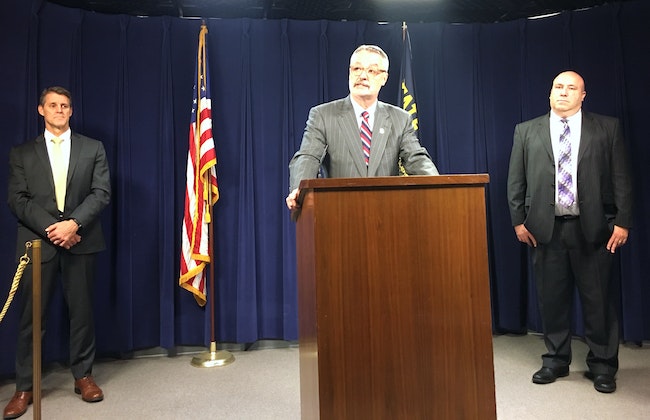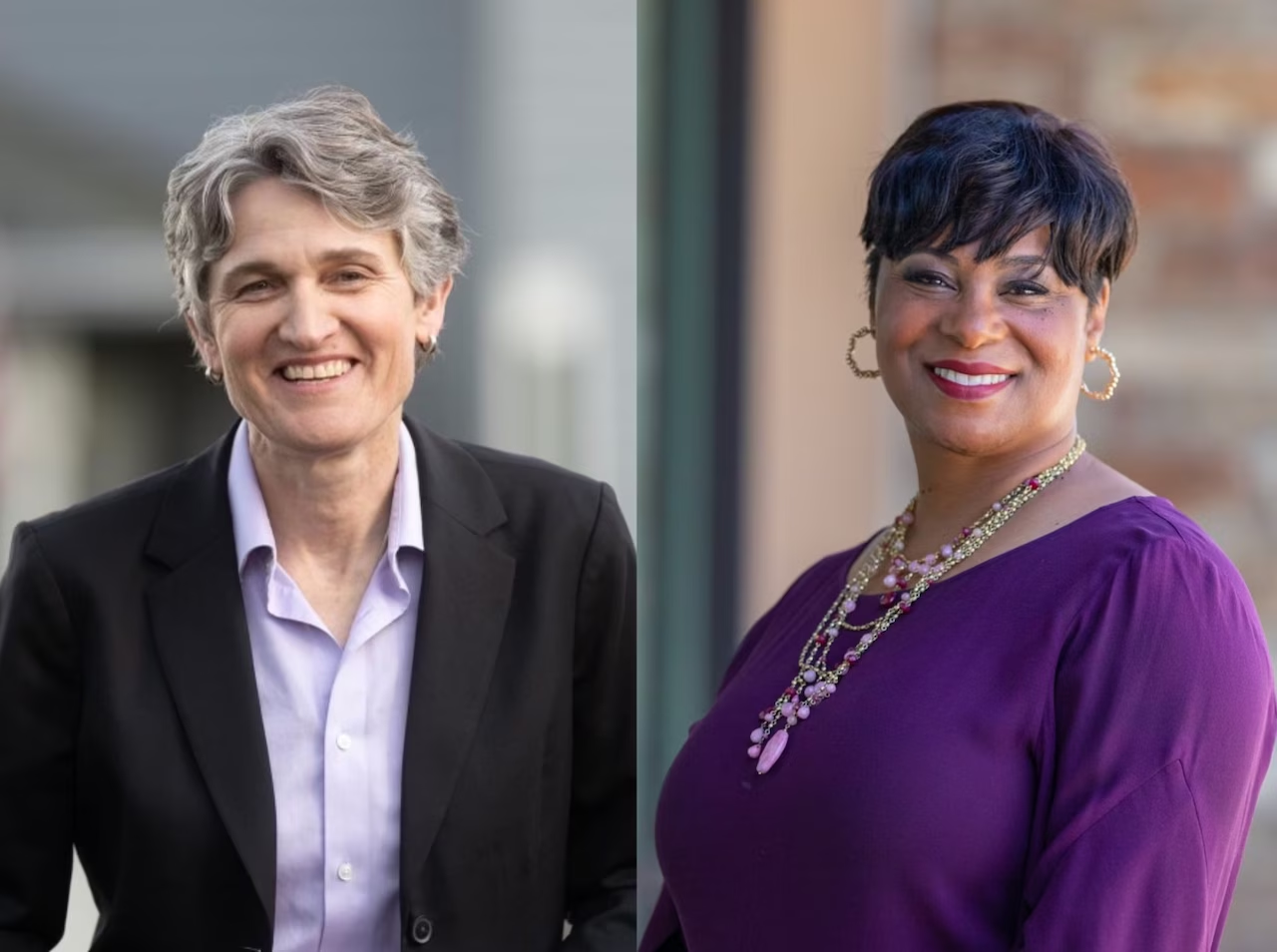 U.S. Attorney Billy Williams addresses the media regarding cyber and disinformation threats to the security of Oregon’s electoral process during a press conference at the Oregon Capitol Tuesday, Feb. 4. (Sam Stites/Oregon Capital Bureau)
U.S. Attorney Billy Williams addresses the media regarding cyber and disinformation threats to the security of Oregon’s electoral process during a press conference at the Oregon Capitol Tuesday, Feb. 4. (Sam Stites/Oregon Capital Bureau)
The state’s top elections official wants voters to know Oregon is doing everything possible to ensure the security of the state’s elections by working with county and federal agencies.
“There was some polling that took place a couple weeks ago that said 43% of the public don’t think elections administrators are doing anything to secure our elections,” said Steve Trout, state elections director in the secretary of state’s office. “That’s the farthest thing from the truth.”
Trout addressed Oregon’s election security at a news conference in Salem on Tuesday, Feb. 4, with U.S. Attorney Billy Williams and Renn Cannon, Oregon FBI special agent in charge. They reviewed the work of Oregon’s Threat Information Gathering and Elections Resources, started a year ago to secure the state’s elections.
Election security has become a white-hot political topic in the wake of Iowa’s caucus process in the nation’s first presidential primary. Results ordinarily announced after the caucuses on Monday night were delayed because of counting issues. There was no initial indication of hacking or other intrusions, authorities said.
According to Cannon, there is a growing sophistication of cyber threats such as ransomware attacks like that of the recent breach on Tillamook County’s web systems. That left county officials without information technology for nearly two weeks while authorities negotiate with the attackers. Trout said the attack didn’t affect voter registration systems or databases in Tillamook County because of quick action to deactivate the connection to the statewide system.
Such successes have Trout, Cannon and Williams feeling confident the state’s elections system is secure.
Trout couldn’t point to new threats to Oregon’s electoral process that have emerged since the 2018 election. Instead, he said, one of the most acute dangers for voters in 2020 is misinformation.
“It also falls upon all of us individually as informed voters to be able to help make sure our elections are secure. We have to protect our democracy by not falling for misinformation or disinformation, looking at the facts and asking questions,” he said.
The briefing preceded a symposium scheduled for Wednesday, Feb. 5, in Salem where county elections officials and candidates can learn about cyber threats and how to combat disinformation on social media.
“I can’t think of a more valuable, more meaningful right than that of being able as a citizen of this country and this state to vote,” Williams said. “So that’s why what we do is so important. We’re all very excited about the symposium tomorrow evening, and what those in attendance are going to learn from the experts who will be speaking.”
The event at the Salem Convention Center is public, but space is limited, and preference will be given to county elections officials and candidates for office, organizers said.
Contact Reporter Sam Stites: [email protected] or 971-255-2480.









